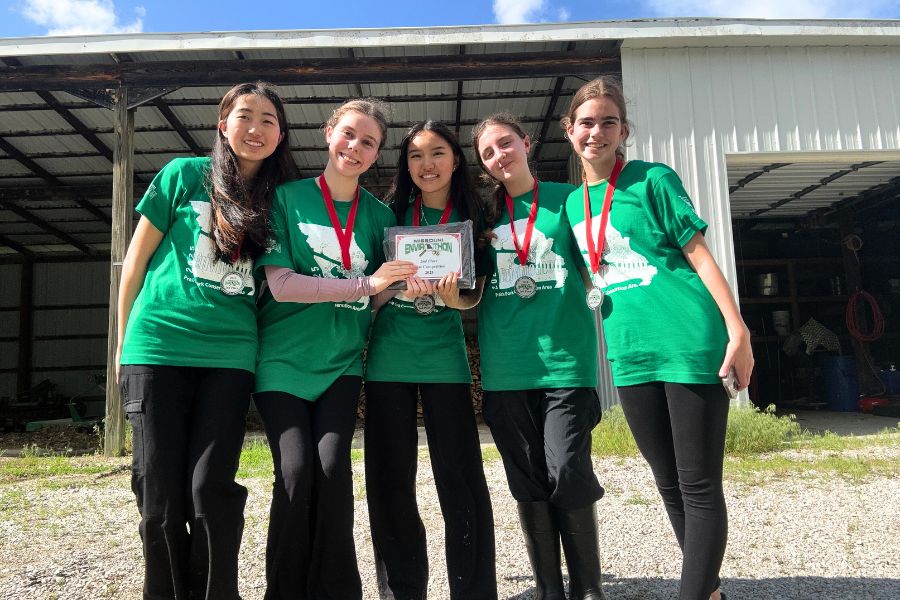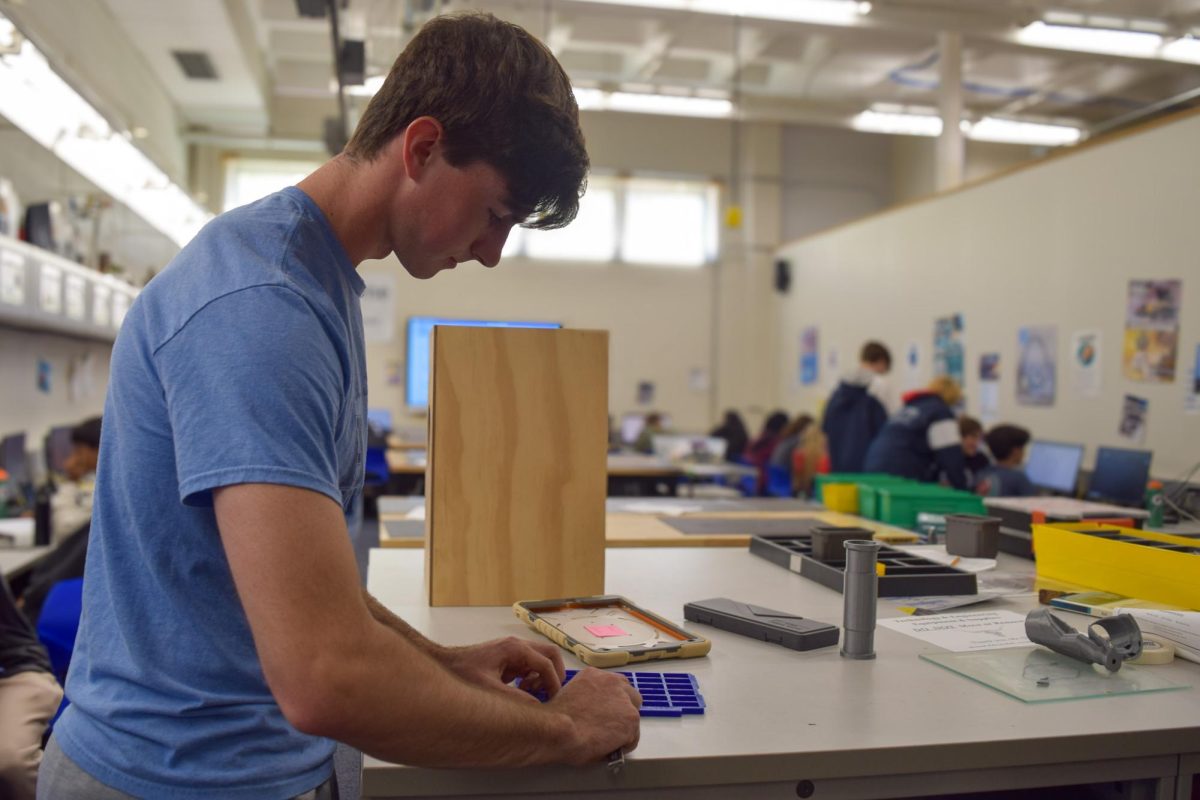In a sterile biology lab senior Rowan Hamilton wore purple gloves while pipetting cheek cells into test tubes. Hamilton spent the summer shadowing a graduate student.
Hamilton wanted to attend Smith College’s biology camp for high schoolers in Northampton, Massachusetts. But the price tag, at almost $2,000, was a deterrent. However, Hamilton had connections with her father who works at Smith, and he arranged for her to go there and shadow a Biological Sciences graduate student, Cait Kirby.
“I came there with only a basic knowledge, but Cait was really cool,” Hamilton said. “She put up with me! She walked me through everything she had to in order for me to learn.”
At first, Hamilton shadowed Kirby, who taught her how to do various things in the lab, such as pipette. Hamilton soon acquired enough experience to become an assistant to her graduate student.
“There was really hard work involved,” Hamilton said, referring to the tests, projects, and readings she had to complete while working in the lab. However, working in the lab was an “unexpected, fun and cool experience,” Hamilton said.
In the lab Hamilton and Kirby experimented on DNA, mainly the X-Chromosome.
“There are two proteins—emerin and filamin—and in certain people they are flipped. What we tried to do was find out why,” Hamilton said.
They took cheek swabs from volunteers and separated the cells through a process called PCR, which heated and cooled the cells. Then they put the cells in a gel, which separated the DNA strands so they could see different components and proteins.
It was through this experiment that Hamilton and Kirby tried to disprove another theory that was proved years ago. The experiment had already been running at the college for about a year and a half before Hamilton arrived, and unfortunately Hamilton and Kirby’s tests proved inconclusive.
“The results weren’t consistent enough,” Hamilton said. “One time we proved [our theory], then another we disproved it.”
Though they didn’t get far with the experiment findings, Hamilton now wants to minor in biology at Smith College.
“The process became rewarding when I was working on a reading from my book and I had an ‘aha!’ moment where I suddenly understood everything! It all made sense! That was the best feeling,” Hamilton said.

![Focused on providing exceptional service, sophomore Darsh Mahapatra carefully cleans the door of a customer’s car. Mahapatra has always believed his customers deserve nothing less than the best. “[If] they’re trusting us with their car and our service, then I am convinced that they deserve our 100 percent effort and beyond,” Mahapatra said.](https://pwestpathfinder.com/wp-content/uploads/2025/10/DSC_0018-1200x800.jpg)
![Sophomore Aleix Pi de Cabanyes Navarro (left) finishes up a soccer game while junior Ava Muench (right) warms up for cross country practice. The two came to Parkway West High School as exchange students for the 2025-2026 school year. “The goal for the [exchange] program is to provide opportunities for both Parkway students and our international exchange students to learn about other cultures, build connections and become confident, capable, curious and caring — Parkway’s Four C’s — in the process,” Exchange Program Lead Lauren Farrelly said.](https://pwestpathfinder.com/wp-content/uploads/2025/10/Feature-Photo-1200x800.png)

![Gazing across the stage, sophomore Alexis Monteleone performs in the school theater. The Monteleone family’s band “Monte and the Machine” has been releasing music since 2012, but Alexis started her own solo career in 2024 with the release of her first single, Crying Skies. “My whole family is very musical, [and I especially] love writing [songs with them],” Monteleone said.](https://pwestpathfinder.com/wp-content/uploads/2025/09/DSC7463-1200x798.jpg)
![Amid teaching a lesson to her AP Calculus BC class, Kristin Judd jokes alongside her students in their funny remarks. Judd has always enjoyed keeping the mood light in her classroom, along with on the volleyball court. “[I enjoy] that side talk where you see [or] overhear a conversation and chime in, or somebody says something funny,” Judd said.](https://pwestpathfinder.com/wp-content/uploads/2025/09/image-1200x730.jpg)
![Eyeing the ball, junior Ella McNeal poses for her commitment pictures at Clemson University. McNeal’s commitment comes after months of contact with top Division 1 soccer programs. “ It has taken a lot to get to where I am, but I know that [what] I've already been through is just the beginning, and I can't wait for what is to come,” McNeal said.](https://pwestpathfinder.com/wp-content/uploads/2025/09/IMG_4926-1200x900.jpeg)


![Senior Adam Zerega stands with senior Dexter Brooks by farm equipment. Zerega often worked with friends and family on his farm. “I've been able to go to my family's farm since I was born. I [spend] at least three weekends a month [on the farm], so I'm there all the time,” Zerega said.](https://pwestpathfinder.com/wp-content/uploads/2025/04/IMG_4872-1200x900.jpg)
